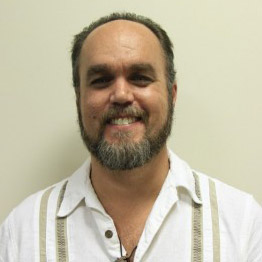The first time I was asked to be a mentor I thought about Homer’s Odyssey. I am a bit of a geek I guess, and I recalled that the original Mentor was an advisor to Odysseus’ son, Telemachus. Even more interesting, at least to me, was that the goddess of wisdom, Athena, took the guise of Mentor when she sought to guide Telemachus on his own journey in search of his father.
am a bit of a geek I guess, and I recalled that the original Mentor was an advisor to Odysseus’ son, Telemachus. Even more interesting, at least to me, was that the goddess of wisdom, Athena, took the guise of Mentor when she sought to guide Telemachus on his own journey in search of his father.
Now, if Telemachus’ guide was none other than the goddess chosen to represent wisdom, who was I to step into that role? I certainly didn’t feel wise. I was in prison just like the young guys I was being asked to help, and I wondered what I could tell them. It seemed that there was no one else to be had though, so I took on the role and did the best I could.
Sometimes we find ourselves in that situation. Maybe we aren’t the perfect person for the job, but we are the ones on hand. This was brought to mind today when I saw astory in The DN, an online publication based in Nebraska. It is about Anne Hobbs, the Director of Juvenile Justice at the University of Nebraska – Lincoln. Hobbs, a lawyer and professor, pairs college kids in one of her classes with youth in a local rehabilitation center.
First the students visit the center, meeting the kids and making sure the match is good. The staff participates in the decision as well, and if everything seems to work out the students will continue to visit the facility while the kids are held there. Even better, the relationship continues after the youngsters are released. The students spend time with their charges, maybe helping with homework or doing some fun activity together.
Hobbs says, “They really need someone to talk to about their frustrations that isn’t going to hand them a joint.” Maybe it is as simple as that. Just spending time together and avoiding things that can bring a kid down. Although the students have committed a year to the relationship, one young lady interviewed has hopes of continuing to help her new friend.
We don’t all have an opportunity to go inside a rehabilitation center, but the need for good guidance is apparent all around us. In my work with kids, and even just around my neighborhood, I see many youth who simply need someone to listen to them and not steer them wrong. That will take a little bit of my time, and I am not sure exactly what to say to them, but I think that is okay. If I can just muster the willingness then I think the rest will take care of itself. If just a few people step up we can have an impact. What do you say?
John Lash is a regular contributor to JJIE, writer and curator for Youthpolicy.org’s Youth and Justice blog, and the program director at the Georgia Conflict Center. He is also a student in the Kennesaw State University Master of Conflict Management program. His interest in restorative justice, Nonviolent Communication, youth, and mind – body practices developed during his nearly twenty five years of imprisonment.
























